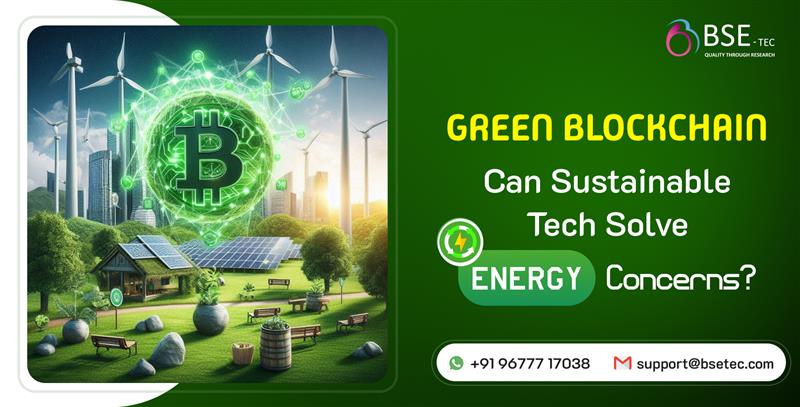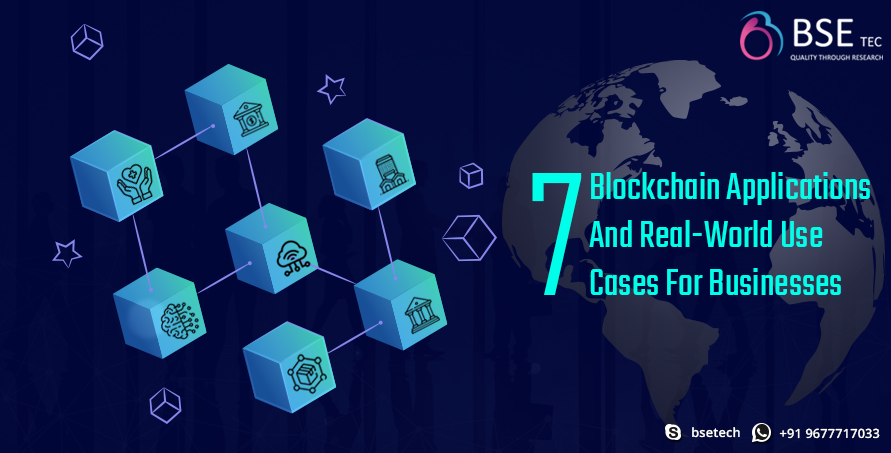
Blockchain technology has transformed industries like finance, supply chain, and healthcare by offering secure, decentralized, and transparent systems. However, the growing popularity of blockchain brings a pressing concern: its high energy consumption. Traditional blockchain models, especially Proof of Work (PoW) used by Bitcoin, demand massive computing power, contributing heavily to carbon emissions.
Enter Green Blockchain — a sustainable alternative designed to reduce blockchain’s environmental footprint without compromising security or scalability. Let’s explore the future of eco-friendly blockchain solutions.
What is Green Blockchain?
Green blockchain refers to energy-efficient blockchain protocols that use alternative consensus mechanisms to minimize electricity consumption. Unlike PoW, which is resource-intensive, green blockchain adopts methods such as:
- Proof of Stake (PoS): Users stake tokens to validate transactions, cutting out the need for mining hardware.
- Delegated Proof of Stake (DPoS): A small group of trusted nodes validate transactions, further reducing energy use.
- Proof of Authority (PoA): Relies on pre-approved validators, making it highly efficient.
By embracing these mechanisms, green blockchain creates sustainable, eco-friendly networks with a reduced carbon footprint.
The Energy Problem in Traditional Blockchain
Blockchain’s energy challenge comes mainly from PoW mining, where thousands of machines race to solve complex puzzles. This process requires:
- Continuous high-power electricity consumption
- Specialized mining hardware
- Massive carbon emissions
For example, the Bitcoin network consumes more electricity than some entire nations, raising concerns about blockchain’s sustainability. As global adoption grows, greener solutions become not just an option — but a necessity.
How Green Blockchain Reduces Environmental Impact
Green blockchain solutions address these concerns by:
- Lowering Energy Usage: Replacing PoW with PoS, DPoS, or PoA significantly cuts power consumption.
- Boosting Scalability: Energy-efficient systems can process more transactions without proportional energy growth.
- Encouraging Decentralized Governance: More inclusive decision-making without excessive energy reliance.
- Using Renewable Energy: Leveraging solar, wind, and hydropower for blockchain operations.
How BSEtec Drives Green Blockchain Innovation
At BSEtec, we recognize that the future of blockchain must be sustainable. Our initiatives focus on:
- Developing Eco-Friendly Blockchain Apps: From finance to healthcare, we build applications powered by green consensus models.
- Consultation & Migration Services: Helping businesses transition from energy-heavy PoW systems to PoS and PoA models.
- Renewable Energy Integration: Partnering with projects that rely on clean energy sources for blockchain infrastructure.
- Education & Awareness: Hosting webinars, blogs, and training to spread knowledge about sustainable blockchain adoption.
Why Green Blockchain Matters for Businesses
Adopting green blockchain is not just about sustainability — it’s about staying competitive in a changing digital world:
- Environmental Responsibility: Reduce carbon footprint and align with global eco-goals.
- Regulatory Compliance: Stay ahead of stricter environmental laws.
- Business Growth: Gain consumer trust, build brand loyalty, and attract eco-conscious investment
The Future of Blockchain is Green
The shift towards green blockchain is a pivotal step in ensuring blockchain technology remains both innovative and sustainable. With energy-efficient consensus mechanisms and renewable energy integration, businesses can reduce their carbon footprint while enjoying the benefits of decentralization.
BSEtec is leading this transformation by helping companies adopt sustainable blockchain solutions tailored to their industry needs.
Ready to make the move towards eco-friendly blockchain?Contact BSEtec today to build your energy-efficient, secure, and scalable blockchain solution. Together, we can power a sustainable digital future!


